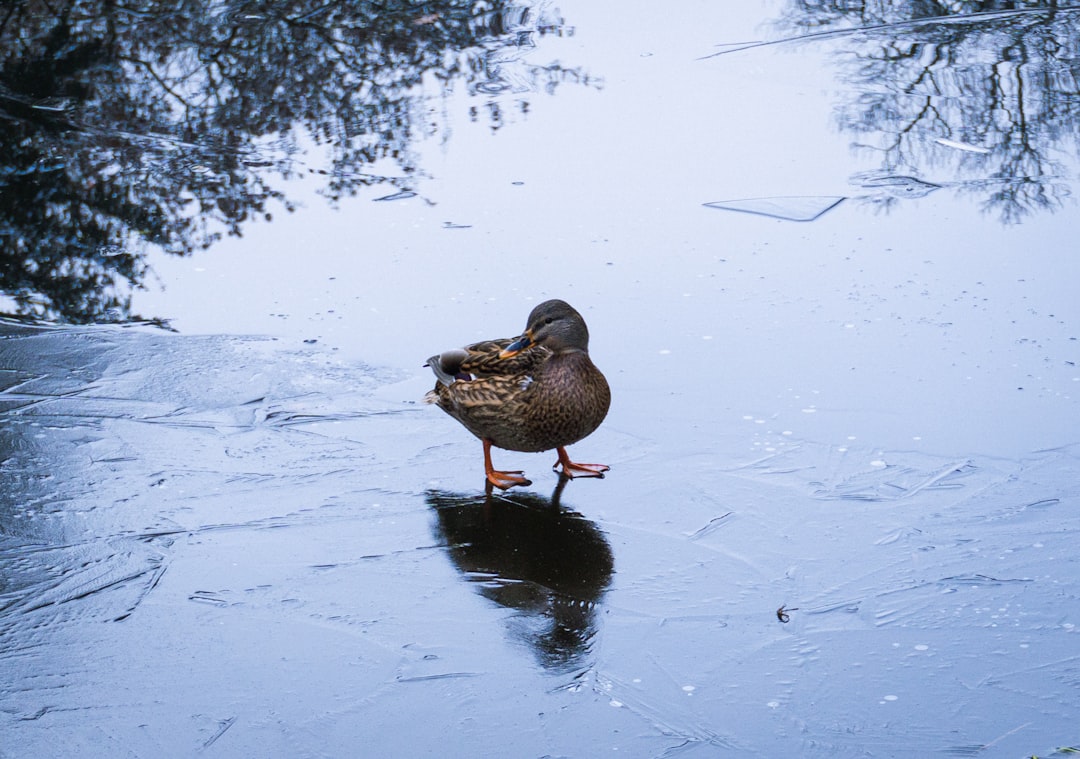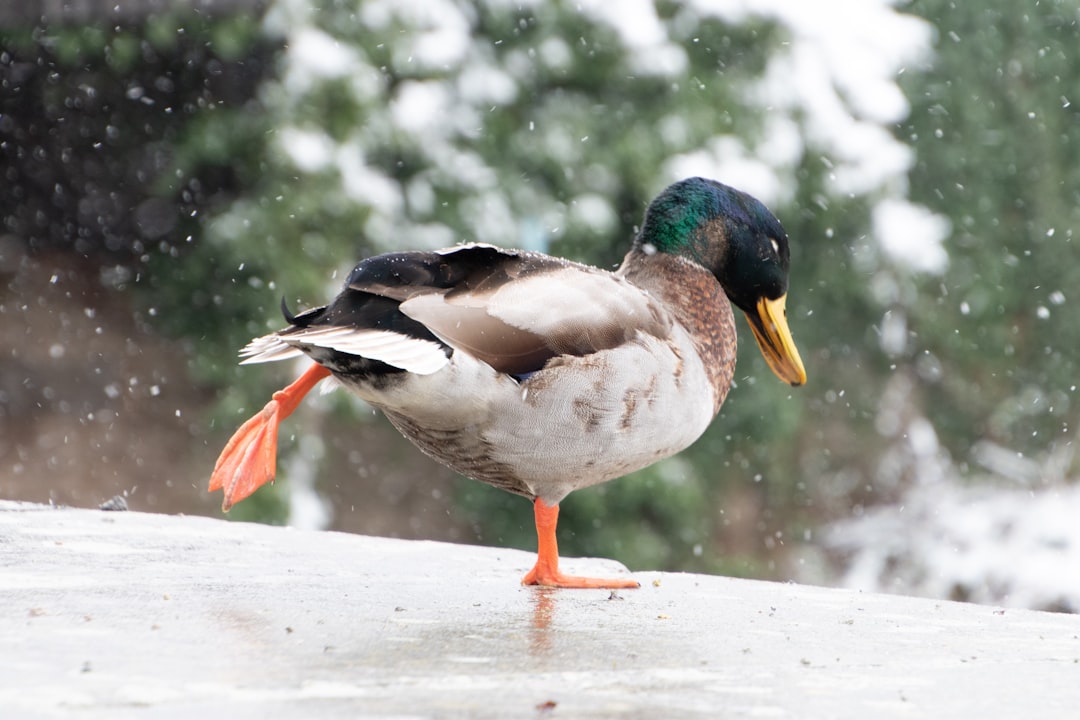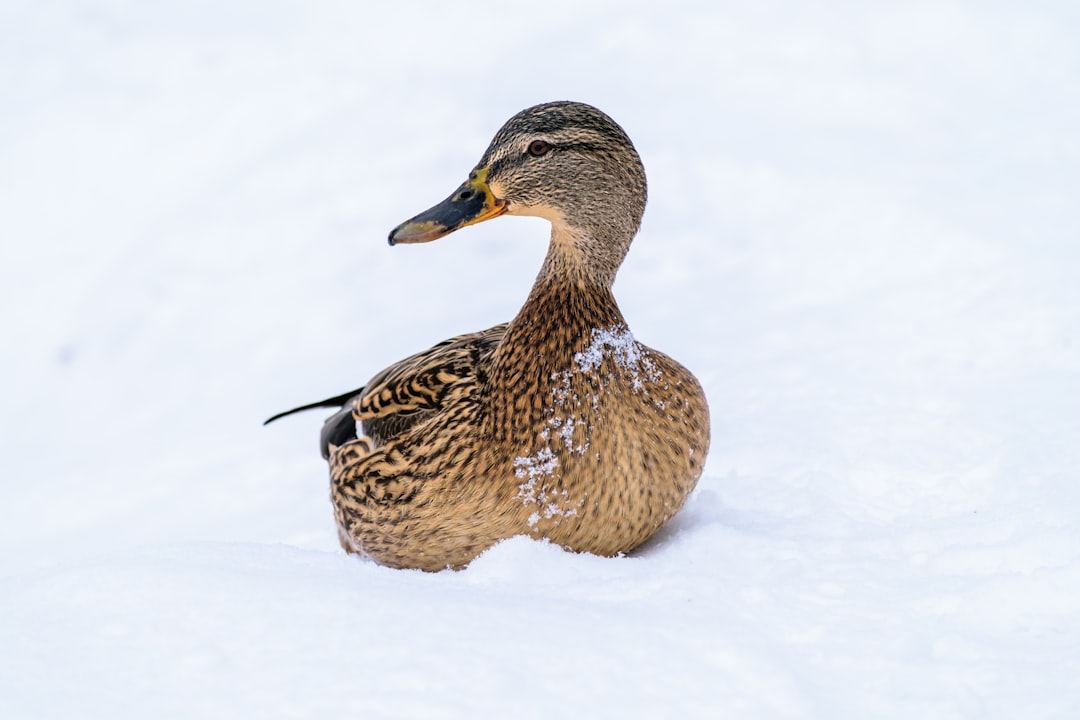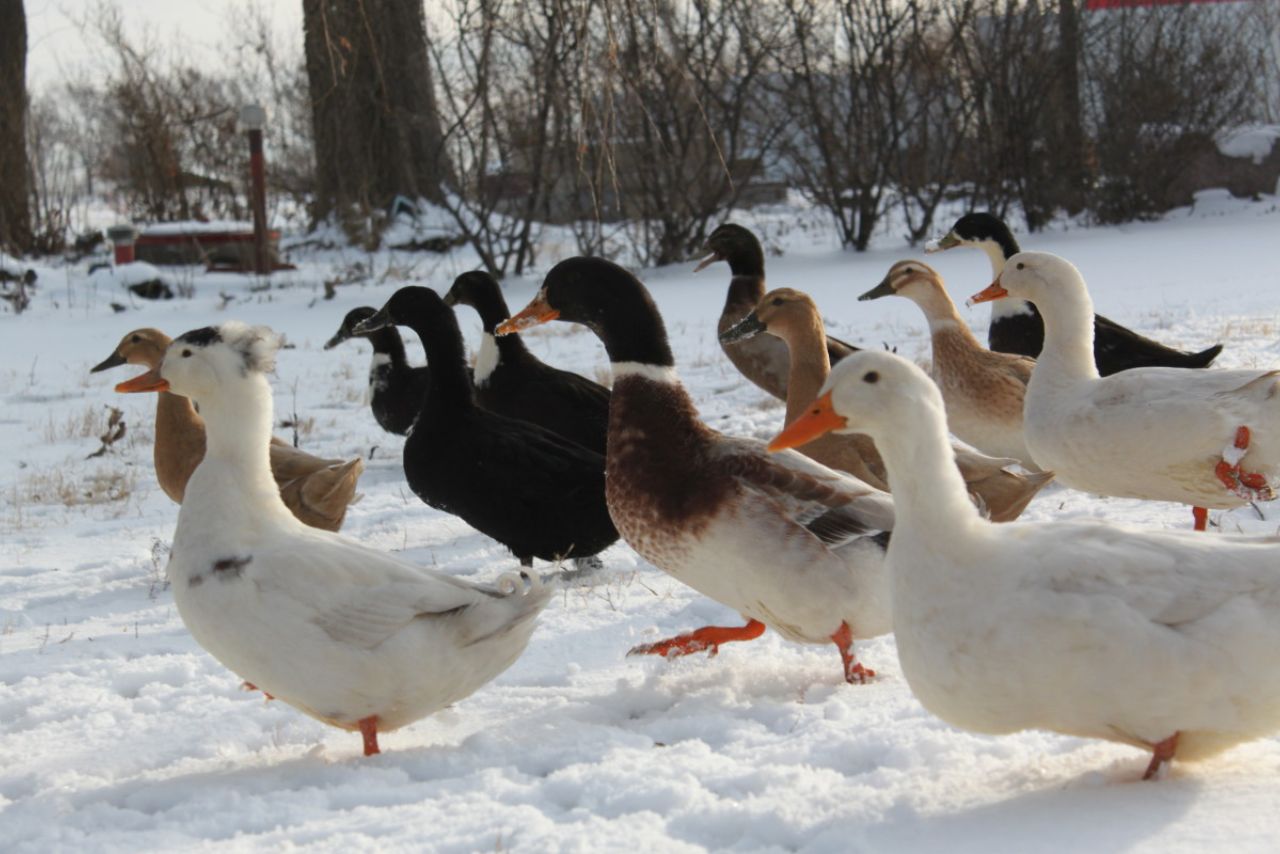Ducks are fascinating creatures that have captured the attention of many. Whether you are a farmer, a bird watcher, or simply an animal lover, you may have wondered if ducks lay eggs in the winter.
This question is particularly relevant for those who keep ducks for their eggs, as the winter months can be a challenging time for egg production.
In this article, we will explore the topic in depth and provide you with the answers you need. So, let’s dive in and find out if ducks lay eggs in the winter!
Yes, ducks can lay eggs in the winter, but it will depend on the breed and their living conditions.
Some breeds are better suited to cold weather, while others may experience a decrease in egg production during the colder months.
Additionally, ducks require optimal living conditions, including proper lighting, temperature, and nutrition, to ensure they continue laying eggs throughout the winter.
Overall, with the right care and conditions, ducks can lay eggs in the winter.
Do Ducks Lay Eggs In The Winter?
The simple answer is yes, ducks can lay eggs in the winter months. However, there are certain factors that can affect their egg production during this time of year.
One of the main factors that can impact a duck’s ability to lay eggs in the winter is daylight hours.
Ducks need at least 12-14 hours of daylight each day in order to produce eggs regularly.
During the winter months, there are fewer daylight hours which can lead to decreased egg production.
In addition, colder temperatures and harsh weather conditions may cause stress for ducks which can also impact their ability to lay eggs.
Factors That Affect Egg Production In Ducks During The Winter
1. Daylight hours:
As the days get shorter during winter, ducks will naturally produce fewer eggs.
2. Temperature:
Ducks prefer temperatures between 40-70°F for optimal egg production, so extreme cold can decrease egg production.
3. Diet:
Ducks need a balanced diet with enough protein, vitamins, and minerals to lay eggs consistently.
4. Water availability:
Ducks need access to clean, fresh water for drinking and bathing, which can affect their overall health and egg production.
5. Lighting:
Artificial lighting can be used to supplement natural daylight hours and encourage egg production.
6. Stress levels:
High levels of stress can decrease egg production in ducks, so it’s important to keep them in a low-stress environment.
7. Age and breed:
Older ducks and certain breeds may produce fewer eggs during the winter months.
8. Health:
Any health issues, such as infections or diseases, can affect duck egg production.
9. Nesting materials:
Providing nesting materials, such as straw or hay, can encourage ducks to lay eggs in designated areas.
10. Predator presence:
The presence of predators, such as raccoons or foxes, can cause stress and decrease egg production in ducks.
11. Molting:
Ducks go through a molting process where they lose feathers and stop laying eggs for a period of time.
12. Genetics:
Some ducks may simply be less productive during the winter months due to their genetic makeup.
Can Ducks Handle Cold Weather?
While ducks can lay eggs in the winter, it is important to ensure they can handle the cold weather.

Ducks are equipped with a layer of fat and waterproof feathers that protect them from the cold, but extreme temperatures can still be harmful.
To keep your ducks healthy during the winter, provide them with a dry and draft-free shelter, and consider using heat lamps or other heating sources if necessary.
Additionally, make sure to provide plenty of fresh water for drinking and bathing, as dehydration can lead to health issues.
Can Ducks Hatch Eggs In Winter?
While ducks can lay eggs in the winter, hatching those eggs may be more challenging.
Incubation requires consistent temperatures and humidity levels, which can be difficult to achieve during the colder months.
Additionally, ducklings are vulnerable to the cold and need a warm environment to thrive. If you do plan on hatching eggs during the winter, consider using an incubator and providing a warm brooding area for the ducklings.
Overall, while it is possible for ducks to lay eggs and hatch them in the winter, it requires extra care and attention from their caretakers.
Do Ducks Need Heat In Winter?

Ducks can handle cold weather, but extreme temperatures can still be harmful. Therefore, it is recommended to provide them with a heat source during the winter months.
Ducks’ shelter must be insulated and free of drafts. Heat lamps or other heating sources can also be used, but caution must be taken to ensure they do not overheat or cause a fire.
It’s important to monitor the temperature regularly and adjust the heat source accordingly.
Overall, providing ducks with adequate shelter and warmth during the winter months is crucial for their health and well-being.
What Time Of The Day Do Ducks Lay Eggs In Winter?
Ducks typically lay eggs in the morning, regardless of the season. However, during the winter months, they may delay laying until later in the day when temperatures have warmed up a bit.
Providing artificial lighting can also encourage ducks to lay earlier in the day when natural daylight hours are limited.
It’s important to note that individual ducks may have their own unique laying schedule and preferences.
By observing your flock’s behavior and egg-laying habits, you can better understand their needs and adjust care accordingly.
How Many Eggs Do Ducks Lay A Day In Winter?
During the winter months, ducks may lay fewer eggs per day than they would during the warmer seasons.
On average, ducks can lay up to 300 eggs per year, but this number may decrease during the winter due to factors such as temperature and daylight hours.
Some breeds of ducks are also known to be more productive than others during the winter months.
For example, Khaki Campbell ducks are known for their high egg-laying rates and can produce up to 300 eggs per year even during the colder months.
Overall, while egg production may decrease during the winter, providing ducks with optimal living conditions and addressing factors that affect egg production can help maintain a healthy and productive flock all year round.
Factors That Increase Egg Production In Ducks During The Winter
1. Adequate lighting:
Ducks require at least 14 hours of daylight to stimulate egg production, so providing artificial lighting can be helpful during the winter months.
2. Optimal Nutrition:
High-quality feed with adequate protein, vitamins, and minerals is essential for egg production in ducks.
3. Clean water:
Ducks need access to clean water to maintain optimal health and egg production.
4. Comfortable Housing:
A warm and comfortable shelter is crucial as ducks tend to lay fewer eggs when they are cold or stressed.
5. Breed Selection:
Some duck breeds are better egg layers than others, so choosing the right breed can increase egg production during winter.
6. Age:
Mature ducks produce more eggs than younger ones, so choosing ducks that are at least a year old can increase egg production.
7. Health:
Ducks that are healthy and free from diseases tend to lay more eggs, so regular check-ups and vaccinations are crucial.
8. Egg collection:
Collecting eggs regularly can stimulate ducks to lay more eggs and prevent them from becoming broody.
9. Calcium supplements:
Providing calcium supplements such as oyster shells or crushed eggshells can help ducks produce stronger eggshells and increase egg production.
10. Stress management:
Minimizing stress factors such as overcrowding, loud noises, and predator attacks can help ducks produce more eggs.
11. Temperature:
Ducks prefer moderate temperatures, so keeping them in a warm environment can increase egg production during winter.
12. Genetics:
Some ducks are genetically predisposed to laying more eggs than others, so choosing high-producing breeds can increase egg production.
Do Ducks Lay Eggs In The Winter? (Open Discussion!)
Yes, ducks can lay eggs in the winter with proper care and conditions.
Factors that affect egg production in ducks during the winter months include daylight hours, temperature, diet, water availability, lighting, stress levels, age and breed, health issues, nesting materials, predator presence, molting, and genetics.

It’s important to ensure that ducks are healthy and warm during the winter to maintain optimal egg production.
Ducks generally lay fewer eggs per day during the colder months than they would during warmer seasons.
However, some breeds such as Khaki Campbell ducks are known for their high egg-laying rates even in colder weather.
Providing adequate lighting for at least 14 hours a day to stimulate egg production is crucial.
Optimal nutrition with high-quality feed containing adequate protein, vitamins and minerals is essential for egg production in ducks.
Clean water, comfortable housing that is warm and predator-free also contribute to better egg production.
Can Ducks Survive In The Winter?
Yes, ducks can survive in the winter with proper care and conditions. However, they are more susceptible to cold-related illnesses and frostbite.
To help them stay warm, it’s important to provide them with a shelter that is draft-free and insulated, with dry bedding for warmth.
Ducks also need access to clean water that is not frozen. Providing them with a heated water source or breaking up any ice regularly can help ensure they have access to water.
It’s also important to monitor their health closely during the winter months and watch for signs of illness such as lethargy, loss of appetite, or respiratory issues.
Summary:
So, Do Ducks Lay Eggs In The Winter? Ducks can lay eggs in the winter with proper care and attention.
Providing them with adequate lighting, optimal nutrition, clean water, comfortable housing, and stress management can help maintain their egg production during colder months.
Additionally, ensuring that they have a warm shelter and access to clean water is essential for their survival.
By taking these steps to provide optimal living conditions and addressing factors that affect egg production and health during the winter season, you can ensure a healthy and productive duck flock all year round.
FAQs
Can Ducks Lay Eggs in The Winter?
Yes, ducks can lay eggs in the winter with proper care and conditions.
Do All Duck Breeds Lay Eggs in The Winter?
No, some duck breeds may lay fewer eggs in the winter than others.
However, certain breeds like Khaki Campbell ducks are known for their high egg-laying rates even in colder weather.
What Factors Affect Egg Production in Ducks During the Winter?
Factors that affect egg production in ducks during the winter include daylight hours, temperature, diet, water availability, lighting, stress levels, age and breed, health issues, nesting materials, predator presence, molting, and genetics.
How Can I Help My Ducks Lay More Eggs in The Winter?
Providing adequate lighting, optimal nutrition, clean water, comfortable housing, and stress management can help maintain duck egg production during colder months.
Is It Safe for Ducks to Survive in The Winter?
Yes, ducks can survive in the winter with proper care and conditions.
However, they are more susceptible to cold-related illnesses and frostbite, so it’s important to provide them with a warm shelter and access to clean water.




